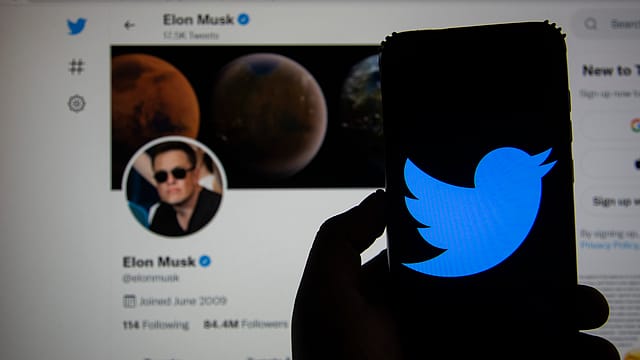Twitter vs Musk: Whistleblower’s allegations add fresh twist to ‘spam accounts’ claims
ADVERTISEMENT

In the Twitter vs Elon Musk saga, some fresh allegations over user security and privacy issues at the microblogging giant have given a boost to the claims made by Tesla chief executive Elon Musk against Twitter.
A whistleblower named Peiter Zatko, who served as the former security chief at Twitter, has levelled allegations against his former company by raising major security lapses and concerns related to spam accounts in his 84-page complaint.
Notably, Twitter fired Zatko in January this year over "ineffective leadership" and "poor performance".
The complaint alleges that Twitter gives priority to user growth over fake accounts on the platform. Raising security issues, Zatko says around half of Twitter's servers are running out of date.
These allegations give a new dimension to Musk's claims about Twitter misrepresenting the actual number of bot accounts on its platform, which he said were more than 5% (as claimed by Twitter in exchange filings).
Musk had decided to back out of the $44 billion April-25 deal in July, citing Twitter's inability to reveal the actual number of fake accounts, which prompted the social media company to sue him in the U.S. Delaware Court of Chancery last month.
In response, Parag Agrawal, Twitter’s chief executive, in a fresh memo to the company employees, has termed these allegations as a "false narrative", riddled with "inconsistencies and inaccuracies".
"We are reviewing the redacted claims that have been published but what we've seen so far is a false narrative that is riddled with inconsistencies and inaccuracies, and presented without important context," says Agrawal in the letter, as seen by CNN.
He said this is "frustrating and confusing" because Zatko was accountable for many aspects of this work he is now "inaccurately" portraying more than six months after his termination.
Musk, meanwhile, continues his tirade against Twitter. Hours after the whistleblower's allegations were published in the media, Musk shared a meme in his usual cryptic way, reading "Give a little whistle".
He also added to the post, saying "so spam prevalence *was* shared with the board, but the board chose not to disclose that to the public…". In this post, he shared a screengrab of a news story from The Washington Post, which, citing sources, claimed the company shares "spam prevalence" with its board.
Despite Musk’s repeated claims on bot accounts, Twitter has accused the billionaire of "knowingly" breaching the $44-billion deal. The two sides now head to trial on October 17.
Twitter had earlier won its first major battle against the billionaire by succeeding in persuading the court to start an early trial in the takeover deal case.
The Delaware judge had ruled in favour of Twitter by choosing a trial date closer to the one proposed by it, in October, not February as was requested by Musk.
On April 25, 2022, Musk, acting through and with his solely-owned entities, Parent and Acquisition Sub, had agreed to buy Twitter for $54.20 per share in cash, for a total of about $44 billion. That price, presented by Musk on a take-it-or-leave-it basis in an unsolicited public offer, represented a 38% premium over Twitter’s unaffected share price. Musk had personally committed $33.5 billion to fulfil the deal.
On July 8, 2022, Musk ended the $44-billion deal abruptly, accusing Twitter of failing to provide information on bot accounts. Twitter termed Musk’s purported termination of the deal "invalid and wrongful". Four days later, Twitter sued Musk in court to complete the merger deal.
The Twitter share closed 7.32% down at $39.86 on the New York Stock Exchange on Tuesday.